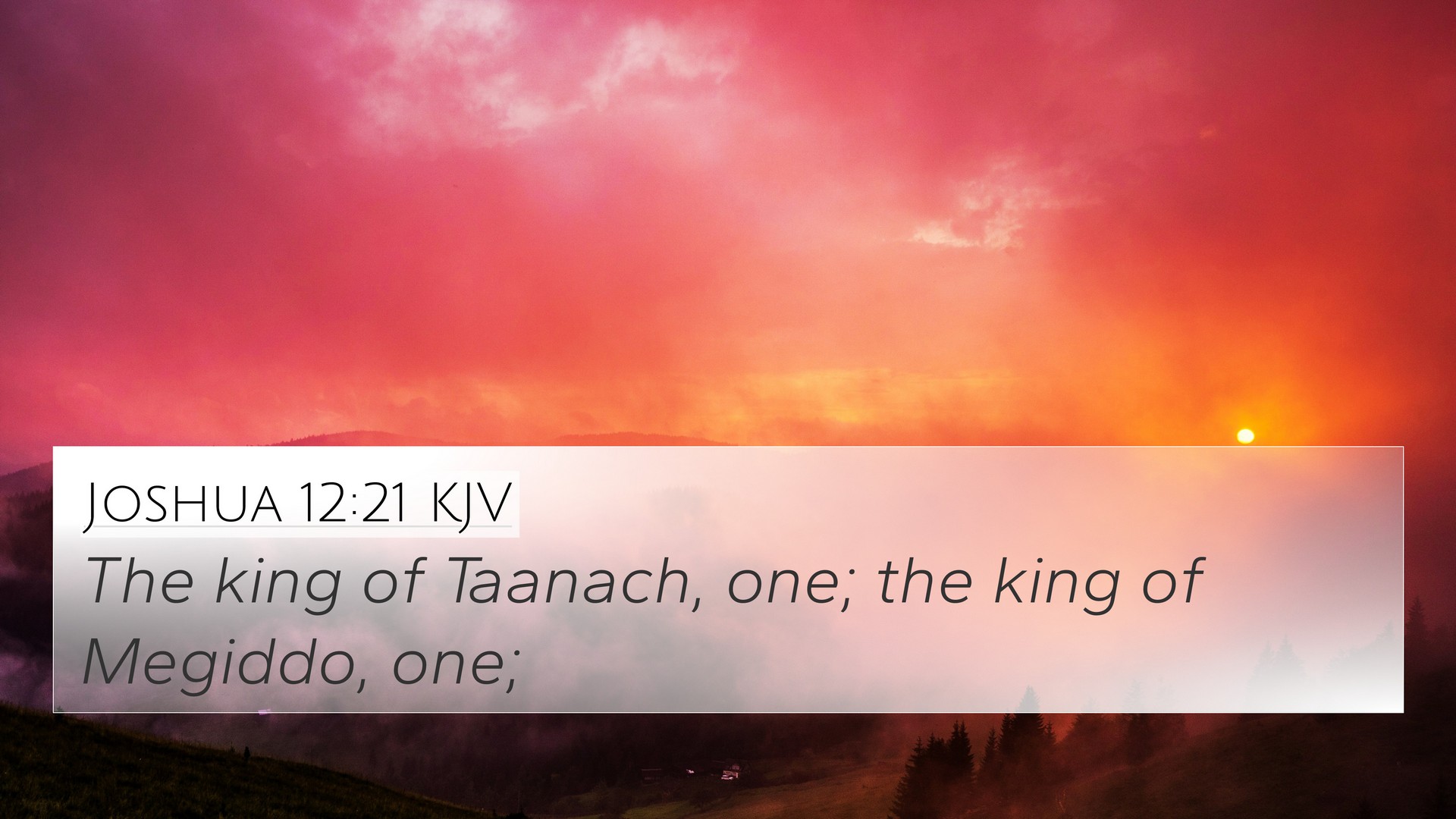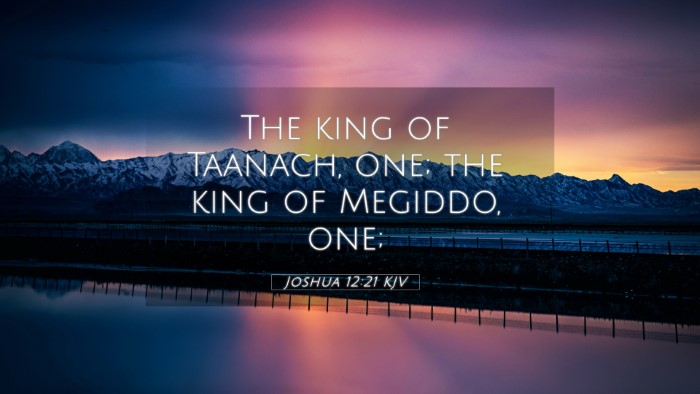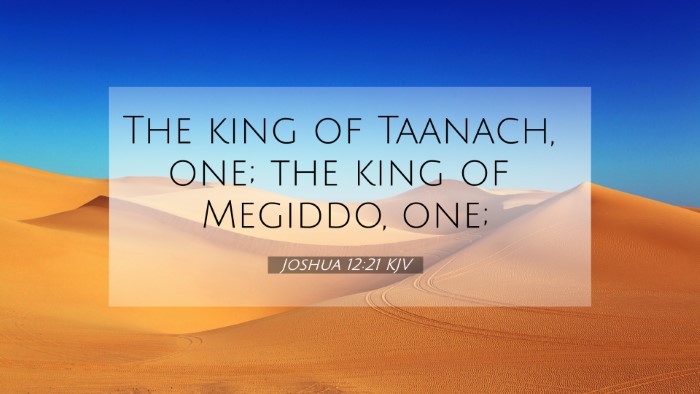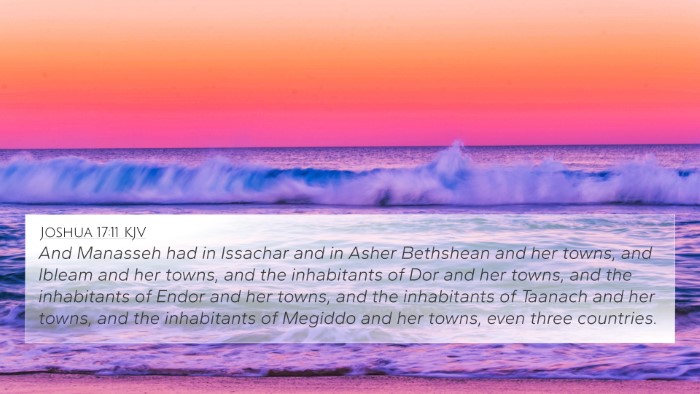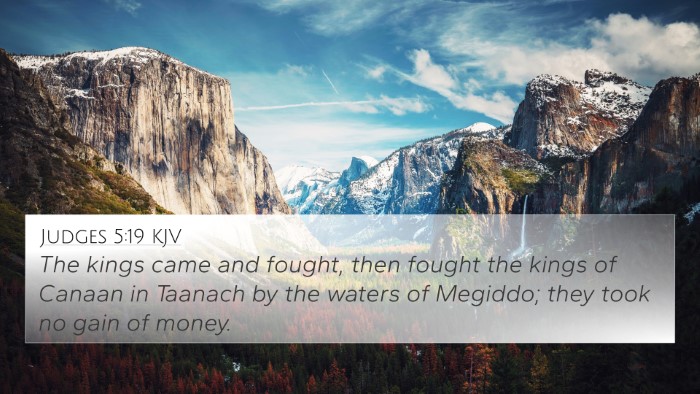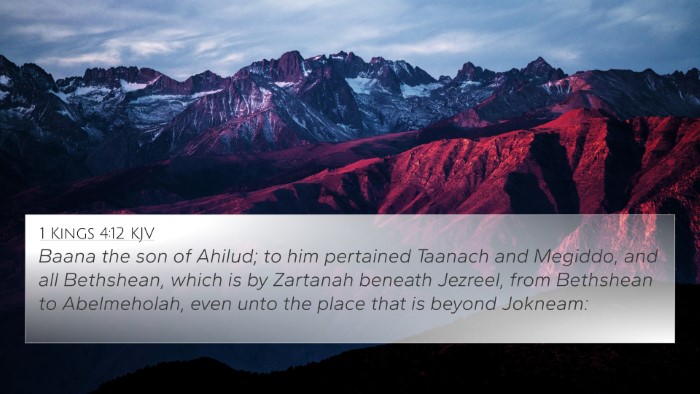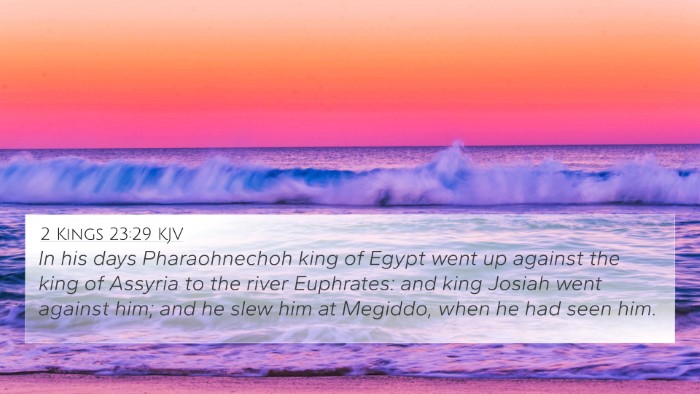Understanding Joshua 12:21
Verse Text: "The king of Taanach, one; the king of Megiddo, one;" - Joshua 12:21
Summary of Joshua 12:21
This verse is part of a larger section in the Book of Joshua that recounts the defeated kings of Canaan as Israel establishes its identity and territorial boundaries. The specific mention of the kings of Taanach and Megiddo reflects the historical context of conquest and shows the complete sovereignty of the Israelite nation over the land.
Interpretative Insights
-
Matthew Henry:
Henry emphasizes the significance of the defeated kings, noting that their mention signifies both the victories achieved by the Israelites and God's faithfulness in fulfilling His promises regarding the land. The defeat of these kings reflects God's power to deliver the land into the hands of His people.
-
Albert Barnes:
Barnes provides insights on the geographical and political context of these cities. He notes that Taanach and Megiddo were strategically important locations in Canaan, representing the broader conquest narrative. The mention of the kings also denotes the end of Canaanite rule in these areas and highlights the establishment of Israel's dominion.
-
Adam Clarke:
Clarke expands on the historical and archaeological significance of Megiddo, relating it to past battles and prophetic events, emphasizing its notable mention in contexts of Biblical prophecy and military history, which serves to underline the divine backing of Israel's conquests.
Cross-Referencing Biblical Texts
In understanding Joshua 12:21, it is beneficial to explore various associated scriptures that provide thematic connections and echoes of the concepts presented in this verse. Here are several relevant Bible cross-references:
- Judges 1:27-28 - Highlights the territories and their conquests, emphasizing the incomplete conquest.
- 1 Kings 4:12 - Mentions the significance of Taanach and Megiddo under Solomon's reign, reinforcing their prominence.
- Revelation 16:16 - Refers to the valley of Armageddon, deriving its name from Megiddo, indicating future prophetic fulfillments.
- Psalm 83:9-11 - Desire for the fall of Canaanite kingdoms connects back to the events of conquest described.
- Deuteronomy 3:11 - Reflects on Og, the king of Bashan, setting the context of Israel's adversaries.
- Joshua 11:10 - Describes the fall of Hazor, a significant city that indicates Israel’s power over the Canaanites.
- Matthew 1:5 - Links to Ruth, who comes from the lineage of these conquests, showing genealogy significance.
Thematic Connections
In exploring Joshua 12:21, readers gain insight into various themes prevalent throughout the Scriptures:
- Sovereignty of God: The conquests validate God's promises to Israel.
- Historical Context: Provides a backdrop for understanding Israel's formation as a nation.
- Divine Providence: The defeat of kings illustrates God’s active role in guiding His people.
Tools and Resources for Further Study
Utilizing comprehensive Bible cross-reference materials can enhance your understanding:
- Bible concordance: Tool for locating and understanding terms and themes.
- Bible cross-reference guide: A structured resource to explore related verses.
- Cross-reference Bible study: Methods to facilitate deep scriptural analysis.
- Bible chain references: Establish thematic links across different scriptures.
Final Thoughts
In summary, Joshua 12:21 serves as an important reminder of the biblical narrative concerning Israel's conquests, God's sovereignty, and historical significance. By cross-referencing with other scripture, deeper thematic connections can be drawn, enhancing the understanding of the overarching divine story presented throughout the Bible.
